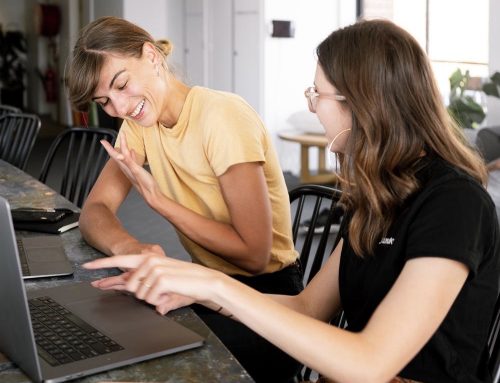The global drive towards a cleaner, greener world has seen an explosion in startup cleantech companies and the creation of a global cleantech market now thought to be worth in excess of $2 Trillion annually.
For investors looking to make cleantech investments there will be certain core criteria that need to be met, but the long-term success of any cleantech business no matter how disruptive or innovative the technology, USP or business model will ultimately come down to its founders and leadership team.
While there are no hard and fast rules – and success can never be guaranteed even for the most promising teams – there are certain traits and behaviours that many successful teams share.
So, what makes a strong founder team? And what should investors be looking out for?
Here, experienced cleantech investor Jelena Markovic (JM), senior associate at BayWa r.e. energy ventures and David Hunt (DH), leadership expert and CEO at Hyperion Executive Search and presenter of ‘Leaders in Cleantech’ Podcast, share their expert insights.
What’s the first thing to look out for in a cleantech founder team?
JM: That they are well suited and prepared for the startup environment. It is very different to the corporate world in many ways, from its dynamics, processes and volatility, to the level of risk, business approach and the individual responsibilities that need to be covered. As a result, it is a context that demands a certain skill set and personality to be able to build a successful business.
DH: First and foremost, resilience and agility. Of course, there are many traits, as we’ll discuss here, but these are essential criteria that every founding team must have at their core, and traits that must be in all hires, particular early ones. Many very talented individuals from larger corporates think they want to switch to starting or joining a ‘cool’ startup, but often their perception of what that means is based on the idea of funky workspaces and dressing down. They are not prepared for the hands-on hard work required and the need to be truly agile in thinking and in action.
The founders of any startup business will have to successfully wear many ‘hats’ at any one time. As will any early hires that may come into the business in those early stages. Which is why, at Hyperion, we focus as heavily on personality and cultural fit, as we do hard skills and industry or technology knowledge.
What hard skills do founder teams needed?
JM: The main hard skills that need to be covered within a cleantech founding team are strategic business planning, engineering, financial planning and reporting. But it’s important to understand that hard skills alone are not going to be sufficient. To lay the right foundations for success in the startup world, hard skills and experience must be complemented by the right personality traits, and a complementary set up of personality types among the C-Level.
The most promising combination of personality traits to have is a visionary and strategist, a salesman, and a details and process-oriented type. Preferably all those traits will be part of each founder’s character to a certain extent.
DH: Yes, the commercial, outward facing sales and strategic skills are usually vital early on, but a balanced and diverse team is always best for making decisions. This is something to think about, not only in relation to the founders but also any early hires. Too many of any one skillset can lead to poor decision making. A good first step is to benchmark the strengths and weaknesses of the founding team, to try and spot any gaps, and address that early. Even acknowledging weaknesses in the fundraising process. With money you can address the ‘gap’ by bringing the right talent in. If you hide it, it’s pretty certain potential investors will spot it, and question your judgement or your honesty if you don’t acknowledge it.
What are the key skills and traits shown by the most successful teams?
Passion: Every member of the c-level team of a successful startup must be passionate, highly resilient, not risk averse, and capable of adapting to new circumstances in a short time. In this particular business context the question is not if problems and challenges will occur – because they most definitely will – it is if the management is capable of managing and reacting to them adequately and effectively, while avoiding overwhelm and impulsive, fear-driven decisions.
Being a visionary: Every founder has to be visionary in their own way, especially if they are offering a disruptive product that gets a lot of doubt and negative feedback from the market. Having a clear vision, believing in it and being passionate about it is the most effective tool against doubt and fear.
Reasoning: A high level of intrinsic motivation and having a ‘reason why’ is required by all of them, since building a startup is demanding, risky and very far away from the traditional comfort zone of a corporate environment.
Team player: Every single person in a startup must be a team player, but especially the founders. At the same time, they should be capable of creating a sense of purpose for the employees, since the wages and work conditions most probably will not be the factors keeping them engaged in the beginning. To create a healthy company culture and effective work structures the founders must be good leaders in their areas of responsibility and in general.
What type of relationship do successful founders have?
JM: Anyone building a startup cleantech business will need to navigate an ever-changing environment of risk and uncertainty. It is therefore crucial for the long-term success of the company that the founders complement each other in personality, as well as in their hard skills. A positive and solid relationship between the founders is one of the most important factors, especially as it is one of the main reasons behind startup failure.
DH: If the founders have previously worked together then that can be beneficial, but of course that’s not essential. This is also true of any early hires that may be made for the business. Just bear in mind that there is always some risk of ‘confirmation bias’ here. I.e. Founders may end up only hiring those individuals who are most like them, or who agree with them and that is not healthy in the long run. The best founding teams recognise differences in skills and opinions, and capitalize on them, challenging and positively pushing each other. As long as core values and vision are aligned.
JM: Having assessed numerous companies and their founders throughout the years, there are certain skills combinations that stand out in those who go on to find success. These characteristics form a vital part of the founder’s approach to building a business. As an investor, these are things you should be looking out for when getting to know the team.
DH: Thinking beyond the initial founding team, these key skills and traits are equally important to look for within any strategically important hires. Such hires will typically be brought on board and given stock or stock options, becoming very much a part of the founding management team and equally invested in the success of the company.
How these skills translate into the c-suite
The CEO: The visionary, the strategist, the motivational beacon, the commander in chief. When it comes to his skills, they are a generalist, with a broad technical understanding in their field and high communication skills, and capable of setting goals and milestones, while structuring and planning the business. They can translate the vision, strategy, and product into a convincing and inspiring story, that they can sell to customers and investors. Also, a good CEO thinks big and outside the box, and is highly passionate about the company, the product, and its people.
The CTO: combines extensive engineering knowledge and in-depth knowledge of emerging technologies with a strategic mindset. They are capable of translating customer demands, current trends, and the company vision into actual technical features, that are unique and disruptive in the best case. Simultaneously they remain flexible in their role, iterating between engineering, people and project management, and strategy.
The CFO: is detail oriented and structured, while keeping strategic in their mindset. They have extensive financial experience and can set up financial core processes, and a business plan that reflects the strategy, the milestones and most importantly, that explains the mechanisms and KPIs of the business model. They are hands-on in the daily business and strongly involved in the fund raising and investors reporting process. They need strong communication skills and will often be brought into commercial negotiations, so they need to be commercially aware and strong communicators, not just a master of numbers.
What skills are essential for tackling the challenge of scaling up?
JM: One of the most important factors when evaluating a founder team, is their capability to sell and explain their product, USP, business model and overall business idea. If they are not able to sell their product and their ability to scale up a company to the investors, they most probably will not be successful in the market.
To raise venture capital, founders have to be able to translate their vision into a business plan; to have strong communication and negotiation skills; and to be passionate and determined about their business. The founders must be 100% aligned on strategy, set up and product and be able to answer an investor’s questions considering the market, customer demands and all other strategic, technical and financial aspects.
If there’s a weak link in the team, should you still invest?
JM: From an investors’ perspective this is an obstacle and has to be thought through very well before the investment. The factors that need to be evaluated are how long it might take to replace the weak link in the team, if the rest of the founders or the general team can balance the lack of skills in the meantime, and what financial consequences this might result in for the startup (e.g. if the person holds shares).
If these factors are balanced out by the potential of the startup, and the expenses and effort are adequate in relation to the company stage, then we will invest.
DH: The answer to this question will 100% depend on the stage of the startup.
No startup company can really scale with a weak link in the founding or management team. If you believe there is a skills issue at the top table, you can fill the gap with an interim manager until you can find or afford a permanent option.
If possible, take action before the next fundraising round. Or at the very least, acknowledge there is a weakness in the team and commit to fixing it post investment. For example, share with the investors around the Cap table that an experienced CFO will be required to join the team post investment.
In summary
If you meet a team that has a strong and unique product in a growing market, a well thought out business plan, and founders with complementary skills and perspectives that can bounce ideas off each other, then you could have a highly promising investment case on your hands. The Importance of a balanced founding team, with the right skills and personality can not be underestimated, but this can be addressed by adding strategically important hires at the early stages, to fill obvious gaps.
Discover more interesting articles from Hyperion Executive Search below.


